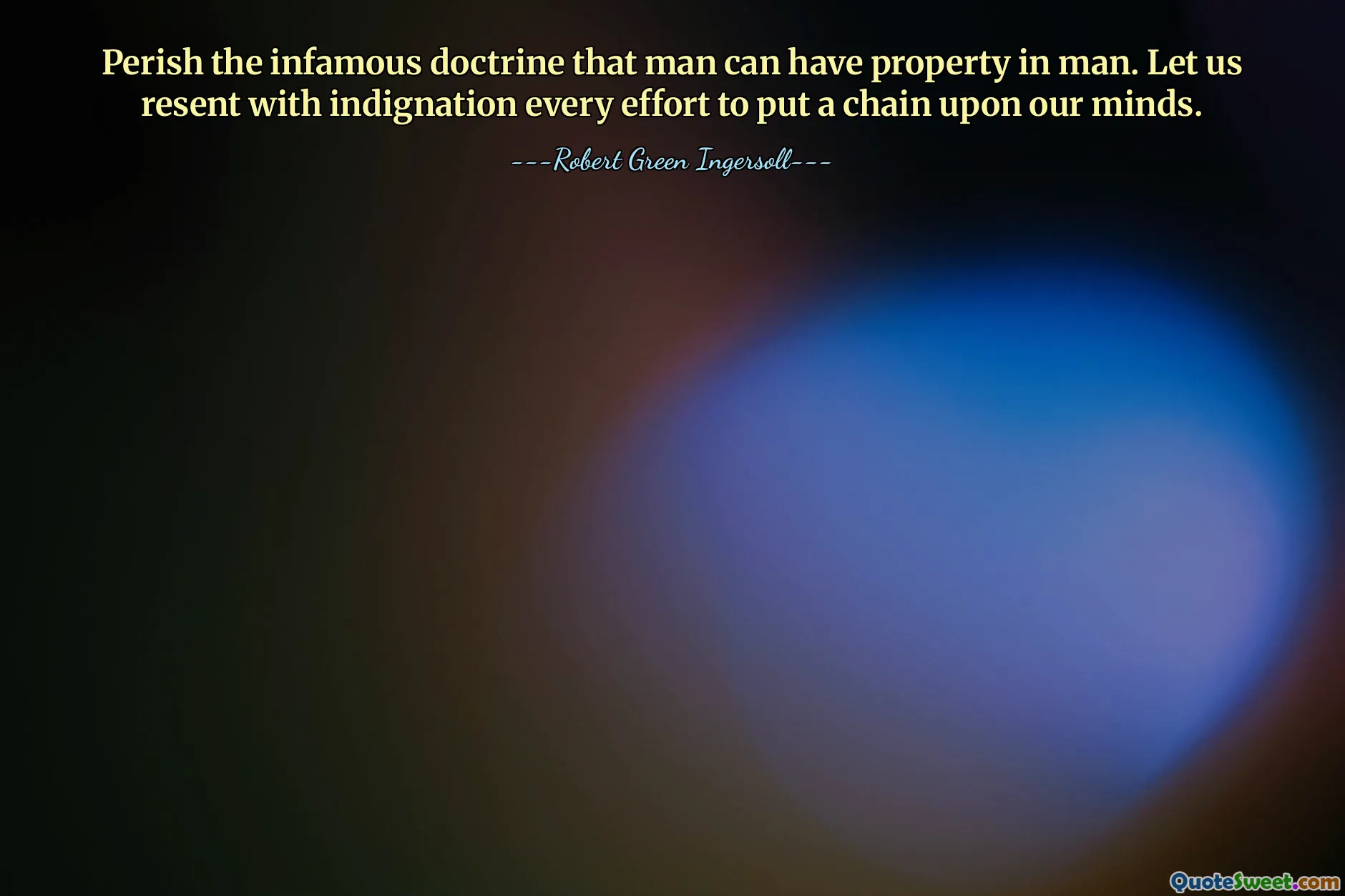
Perish the infamous doctrine that man can have property in man. Let us resent with indignation every effort to put a chain upon our minds.
This quote profoundly challenges the dehumanizing notion of owning or having proprietary rights over another person, an idea historically linked to slavery, tyranny, and systemic oppression. The assertion that no individual should be considered property or a commodity echoes the fundamental principles of human liberty and personal dignity. It calls for an active rejection of all doctrines, laws, or social practices that subject individuals to control, coercion, or ownership. Such ideas have pervaded societies in various forms—from slavery and serfdom to modern-day exploitation—and continue to threaten personal autonomy and freedom. The phrase urges us to resist the imposition of mental chains designed to subjugate and suppress mental independence. It emphasizes that true liberty involves not only external freedom but also internal sovereignty—our ability to think, believe, and act without undue constraints imposed by others. This resonates deeply with the Enlightenment ideals and the ongoing struggle against authoritarianism, discrimination, and inequality. It acts as a rallying cry for those committed to justice, reminding us that progress depends on our willingness to stand against doctrines and practices that diminish human worth. Maintaining mental independence and resisting chains—even when they are institutionalized or socially accepted—is crucial to preserving individual rights and fostering a more equitable society. It urges us never to accept intellectual or moral captivity, to continually challenge and dismantle oppressive systems in pursuit of true human emancipation.










